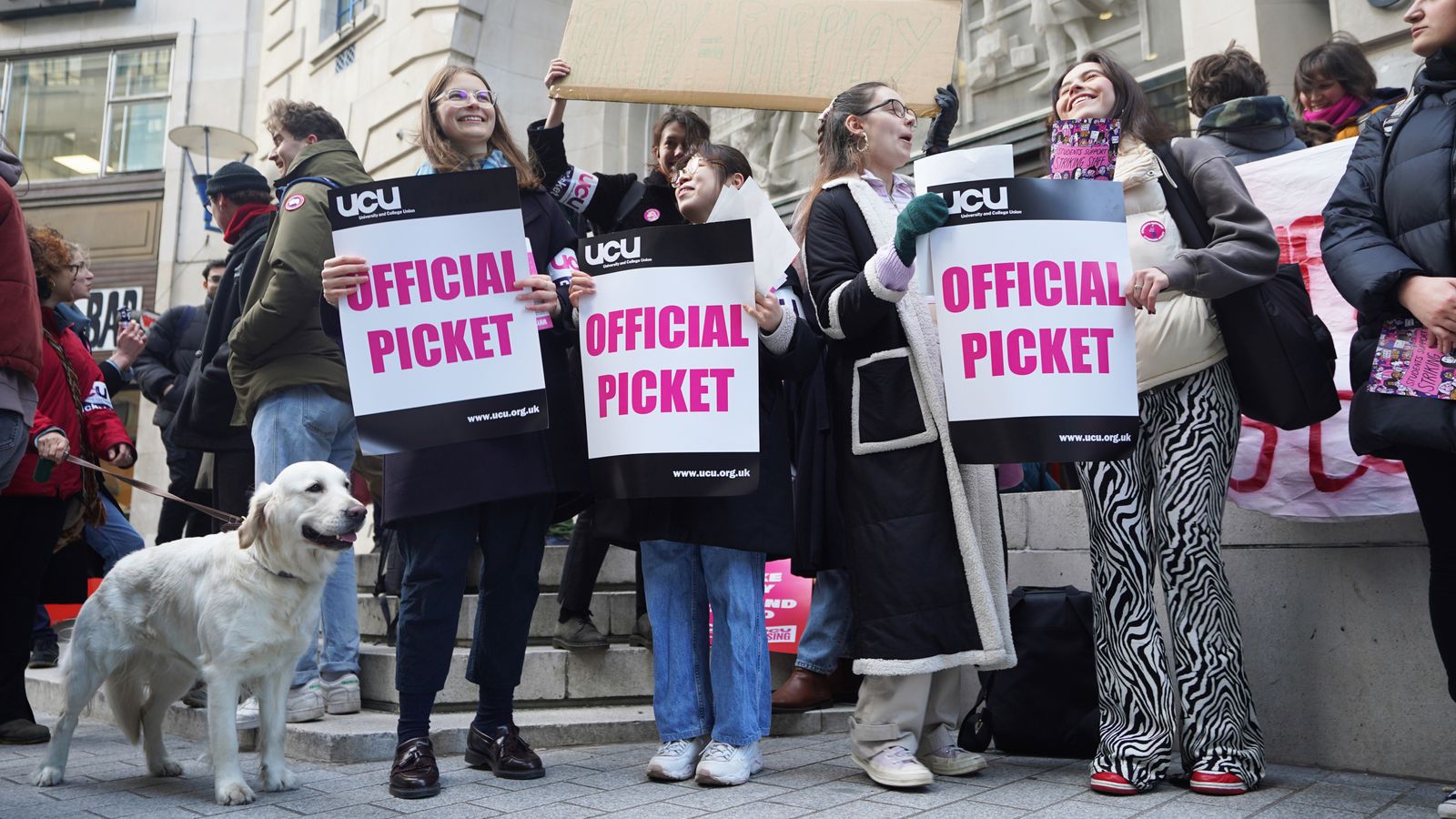Industrial relations in Britain are at their most fractious since 1989.
On one side workers are demanding chunky pay rises that match inflation; on the other the government (and in more muted tones the Bank of England) is warning that higher pay rises could make the inflation problem worse.
The fallout is plain to see: the country has lost almost 2.5 million working days to strike action since June last year, when railway workers called their first nationwide strike. This is the highest annual figure since 1989.
How will it end?
The government is holding its nerve and hoping that wage pressures will fall back naturally as slack in the labour market increases. There are signs that this is already happening.
As the country heads for recession, redundancies are rising, vacancies are falling and economic inactivity is falling rapidly.
Please use Chrome browser for a more accessible video player
This will feed into higher unemployment, which could exceed 6% in the coming years. All of this will increase competition for jobs, which should dampen wage demands.
The Bank of England has been at pains to stress that higher wages will fuel inflationary pressure in the economy and that if the momentum builds it will be forced to raise interest rates.
The latest wage data shows that wages in the private sector, the metric that the Bank of England pays close attention to, rose by 7.3% in the three months to December.
That is still considerably below the headline inflation rate of 10.5% uncomfortably high for policymakers and above the Bank of England’s forecast of around 7.2%.
Read more:
Ford to cut more than 1,000 jobs
Amazon warehouse staff escalate strike action in fight for better pay
This means more interest rate rises could be on the cards.
Ashley Webb, economist at Capital Economics, said: “This supports our view that the Bank of England will have to raise interest rates from 4% now to a peak of 4.5% in the coming months.”
Click to subscribe to The Ian King Business Podcast wherever you get your podcasts
That being said, a closer look at the wage data indicates that growth could be reaching its peak.
On a monthly basis, wage growth declined to 6.9% in December, from 7.5% in November.
“It still is far too high for the MPC (Bank of England’s monetary policy committee) to tolerate long-term, but it should slow further, as labour market slack builds, job-to-job flows decline, and CPI inflation and inflation expectations continue to fall,” said Samuel Tombs, economist at Pantheon macroeconomics.






















